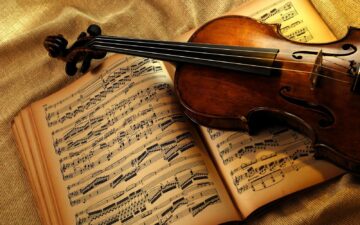Joel Sandelson at Aeon Magazine:
 We habitually associate literary realism with things like down-to-earth subject matter, plausible detail and convincing chronology. For the ancients, though, realism had just the opposite meaning. Aristotle argued that art should transcend the mass of incidental details around us and deal with the more important reality of universals. On this view, art imitates reality not by directly copying things around us, but by somehow reflecting our broad experience of reality through its modes of representation. But in the wake of the empiricist philosophy and science of the 1600s and 1700s, this idea was turned on its head: what was ‘realistic’ was now the flux of particulars. This updated notion of realism found classic expression in the novel – novels that depicted particular people having particular experiences at particular times and places. For the literary theorist Mikhail Bakhtin, writing in the 1930s, the quintessential feature of the modern novel was ‘heteroglossia’: a riotous mixture of voices, characters and styles, which undermines the claim to authority of any one of them. And this opens up a tempting musical parallel.
We habitually associate literary realism with things like down-to-earth subject matter, plausible detail and convincing chronology. For the ancients, though, realism had just the opposite meaning. Aristotle argued that art should transcend the mass of incidental details around us and deal with the more important reality of universals. On this view, art imitates reality not by directly copying things around us, but by somehow reflecting our broad experience of reality through its modes of representation. But in the wake of the empiricist philosophy and science of the 1600s and 1700s, this idea was turned on its head: what was ‘realistic’ was now the flux of particulars. This updated notion of realism found classic expression in the novel – novels that depicted particular people having particular experiences at particular times and places. For the literary theorist Mikhail Bakhtin, writing in the 1930s, the quintessential feature of the modern novel was ‘heteroglossia’: a riotous mixture of voices, characters and styles, which undermines the claim to authority of any one of them. And this opens up a tempting musical parallel.
In the early decades of the 18th century, just as the first modern novels were gaining purchase among a new reading public, a new kind of opera from Naples was sweeping Europe. It was a comic style later called opera buffa, distinguished from its forebears by its depiction of multiple character types.
more here.
Enjoying the content on 3QD? Help keep us going by donating now.
